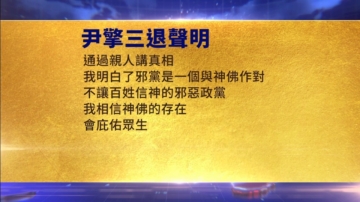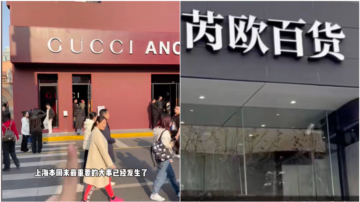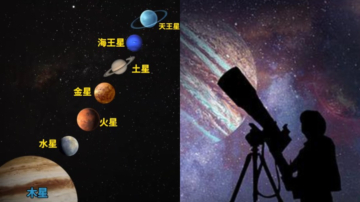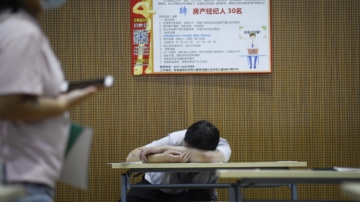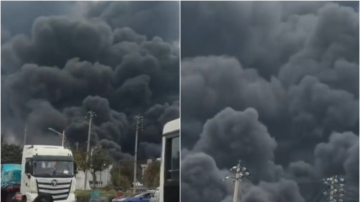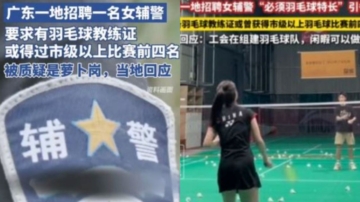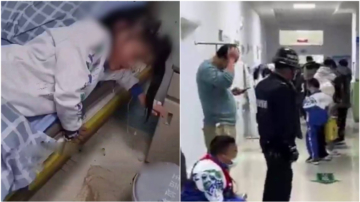【新唐人2012年7月14日訊】有讀者向《大紀元時報》爆料,提供一份中國各省外逃官員及攜帶資金情況的匯總表,按照中國各省貪官腐敗、外逃情況,分成類別,作了幾個匯總,並將貪官名錄,譏諷形容為「壯觀的隊伍」,而且這個隊伍還在「不斷壯大、可持續發展」。對此,有評論表示,這份中國貪官名錄,其實就是一個民族的恥辱,一個民族的災難,中共體制內缺少制衡,缺少民眾的監督,因此才給貪污腐敗造成很大的機會。中國老百姓最關心或者最痛心的仍然是官員的腐敗。
7月12日號,《大紀元時報》刊登一份中國各省外逃官員及攜帶資金情況的匯總表,該表格顯示,截至到2011年11月26日號,至少7101名中共官員外逃到美國,並帶走3360億人民幣的資金。
這份「中國貪官錄」涵蓋面廣,包括,中國各省貪官外逃投資美國總表;以及包括正廳級以上官員和百名地廳級以上官員的名單等。
《北京之春》雜誌主編胡平認為,中共大量的官員攜帶鉅款到海外,這已不是新聞了,只是缺少詳細的統計數據。現在有人提供給《大紀元時報》一份中國各省外逃官員及攜帶資金情況的匯總表,這可以幫助社會大眾更加了解中共高官的貪污記錄。
胡平還表示,中共現行的體制,事實上就是在鼓勵官員貪污,就像黑社會一樣,只要是在中共政治體制內的官員就不得不腐敗,只要參與其中,就得依賴這個政權,也就是所謂的同舟共濟效應。如果這個制度改變了,那麼這些官員可能會受到清算,所以他們就會死心塌地的維護這個政權。
《北京之春》雜誌主編 胡平:「另外更重要的一點,是現在這個政權就是靠官員的腐敗,來維繫這個制度的運轉,也就是說他需要官員去腐敗,你要不腐敗就成了異類了,如果你不腐敗,就被其他官員們認為政治上的不可靠,所以這麼一來,官員的貪污腐敗就變本加厲。」
胡平表示,儘管中共當局有時候會搞一些打擊貪污腐敗的行動,但是成效非常小,而且他打擊的對像都是權力鬥爭的失敗者,並不是真正貪污腐 敗的罪行惡劣者,因此,儘管當局的打擊貪污腐敗的呼聲很高,但是腐敗不但沒有收斂,反而是發展得越來越厲害。
《大紀元》報導指稱,一項對共產黨中央委員會的研究發現,204名中央委員當中,有91%的家人移民海外,甚至加入外籍。即使在中央紀律檢查委員會的127名成員當中,88%的親屬移民海外。
報導還說,根據美國政府的統計顯示,中國部級以上的官員,包含已退位的兒子輩,74.5%擁有美國綠卡或公民身份,孫子輩中,有美國公民身份的達到91%以上。
全球自由資訊運動網站創始人張新宇:「一個最基本的第一個原因,也就是他們對中國共產黨和共產黨的政權沒有任何的希望,他們都認為共產黨會倒臺的,他們把財產和自己的家人放在中國大陸,感覺到有危險,所以他要把這些包括家人和財產轉移到海外,也進一步說明,海外包括歐美是安全的地方,也是文明的地方。」
張新宇認為,從不安全的地方走向安全的地方,這是一個人求生的基本反應,所以只要中國還是共產黨統治,那麼中國必然還是一個不安全的地方。
採訪/陳漢 編輯/黃億美 後製/郭敬
Record Exposes China's Corrupt Officials, Dubbed: The Spectacular Squadron
A reader of The Epoch Times provided editors with a list
summarizing all of the corrupt officials from each province in China,
who have fled overseas with bribery money.
The list was categorized by corruption and fleeing.
The list was mockingly dubbed, “The Spectacular Squadron,”
which is “sustainable developing to become bigger and bigger.”
Commentators said that this list is disgraceful and
the disaster of a nation.
In the system of the Chinese Communist Party (CCP) there is
a lack of checks and balances and public supervision of the Party.
Thus, there are many chances for corruption. The issue of
corrupt officials is of most concern to the people of China.
On July 12, The Epoch Times published the summary of
all the corrupt officials from each province in China,
who have fled overseas with embezzled money.
The summary shows that by November 26, 2011,
at least 7,101 CCP officials have fled to the US,
with a total of 336 billion Yuan (525 million US$).
This “Summary of Corrupt Chinese Officials”
covers a wide range.
It lists corrupt officials from all provinces who have fled to
and made investments in the US, including hundreds of high-level officials.
Hu Ping, Chief Editor of Beijing Spring magazine,
feels that its no news that many CCP officials have fled overseas with large sums of money.
However, it normally lacks of a detailed statistics.
Someone now has provided The Epoch Times with
this list detailing the corrupt officials of each province that
have fled overseas and how much money they have embezzled.
It will help the public learn more about CCP officials'
corruption.
Hu Ping also said that the CCP's current system is actually
encouraging corruption.
Just like a gang, as long as you are an official involved in
this political system, you have to rely on it because you are all in the same boat.
If the current system changes, these officials might be accused,
so they have to devote themselves to maintain the regime.
Hu Ping, Chief Editor of Beijing Spring: “Another important
point is that the current regime is dependent on
the corruption of officials in order to maintain the system,
which means it requires corruption.
If you are not corrupted, then you become an outcast
because other officials will consider you politically unreliable.
As a result, corruption will only intensify in China's officialdom.”
Hu Ping said that although the CCP authorities often launch
crackdowns on corruption, the effect is limited.
Also, whom they crack down on are those who lose in power
struggles instead of those who are severely corrupt.
Thus, despite the large-scale crackdowns,
corruption still intensifies rather than decreases.
According to The Epoch Times, a study on the CCP's Central
Committee shows that
among 204 committee members, 91% of them have
their families immigrated overseas or become foreign citizens.
Even among the 127 members of the Central Commission for
Discipline Inspection, 88% of them have their families immigrated overseas.
According to the report, statistics from the US government
shows that 74.5% of China's upper ministerial officials,
including the sons and daughters of retired officials,
have US green cards or citizenship.
Among their grandchildren, over 91% have US citizenship.
Zhang Xinyu, founder of the Global Freedom of Info.Campaign:
“The primary and the most fundamental factor is that
they do not have any hope for the CCP and its regime.
They all regard that the Party will collapse.
They feel it is risky to leave their families and properties
in mainland China.
Thus, they move their family members and money overseas.
This further indicates that overseas, including
Europe and the US are safe and civilized nations.”
Zhang believes that moving from an unsafe place
to somewhere safe is a reflection of a basic need in a living being, to survive.
Hence, as long as China is ruled by the CCP,
China is doomed to be an unsafe nation.
7月12日號,《大紀元時報》刊登一份中國各省外逃官員及攜帶資金情況的匯總表,該表格顯示,截至到2011年11月26日號,至少7101名中共官員外逃到美國,並帶走3360億人民幣的資金。
這份「中國貪官錄」涵蓋面廣,包括,中國各省貪官外逃投資美國總表;以及包括正廳級以上官員和百名地廳級以上官員的名單等。
《北京之春》雜誌主編胡平認為,中共大量的官員攜帶鉅款到海外,這已不是新聞了,只是缺少詳細的統計數據。現在有人提供給《大紀元時報》一份中國各省外逃官員及攜帶資金情況的匯總表,這可以幫助社會大眾更加了解中共高官的貪污記錄。
胡平還表示,中共現行的體制,事實上就是在鼓勵官員貪污,就像黑社會一樣,只要是在中共政治體制內的官員就不得不腐敗,只要參與其中,就得依賴這個政權,也就是所謂的同舟共濟效應。如果這個制度改變了,那麼這些官員可能會受到清算,所以他們就會死心塌地的維護這個政權。
《北京之春》雜誌主編 胡平:「另外更重要的一點,是現在這個政權就是靠官員的腐敗,來維繫這個制度的運轉,也就是說他需要官員去腐敗,你要不腐敗就成了異類了,如果你不腐敗,就被其他官員們認為政治上的不可靠,所以這麼一來,官員的貪污腐敗就變本加厲。」
胡平表示,儘管中共當局有時候會搞一些打擊貪污腐敗的行動,但是成效非常小,而且他打擊的對像都是權力鬥爭的失敗者,並不是真正貪污腐 敗的罪行惡劣者,因此,儘管當局的打擊貪污腐敗的呼聲很高,但是腐敗不但沒有收斂,反而是發展得越來越厲害。
《大紀元》報導指稱,一項對共產黨中央委員會的研究發現,204名中央委員當中,有91%的家人移民海外,甚至加入外籍。即使在中央紀律檢查委員會的127名成員當中,88%的親屬移民海外。
報導還說,根據美國政府的統計顯示,中國部級以上的官員,包含已退位的兒子輩,74.5%擁有美國綠卡或公民身份,孫子輩中,有美國公民身份的達到91%以上。
全球自由資訊運動網站創始人張新宇:「一個最基本的第一個原因,也就是他們對中國共產黨和共產黨的政權沒有任何的希望,他們都認為共產黨會倒臺的,他們把財產和自己的家人放在中國大陸,感覺到有危險,所以他要把這些包括家人和財產轉移到海外,也進一步說明,海外包括歐美是安全的地方,也是文明的地方。」
張新宇認為,從不安全的地方走向安全的地方,這是一個人求生的基本反應,所以只要中國還是共產黨統治,那麼中國必然還是一個不安全的地方。
採訪/陳漢 編輯/黃億美 後製/郭敬
Record Exposes China's Corrupt Officials, Dubbed: The Spectacular Squadron
A reader of The Epoch Times provided editors with a list
summarizing all of the corrupt officials from each province in China,
who have fled overseas with bribery money.
The list was categorized by corruption and fleeing.
The list was mockingly dubbed, “The Spectacular Squadron,”
which is “sustainable developing to become bigger and bigger.”
Commentators said that this list is disgraceful and
the disaster of a nation.
In the system of the Chinese Communist Party (CCP) there is
a lack of checks and balances and public supervision of the Party.
Thus, there are many chances for corruption. The issue of
corrupt officials is of most concern to the people of China.
On July 12, The Epoch Times published the summary of
all the corrupt officials from each province in China,
who have fled overseas with embezzled money.
The summary shows that by November 26, 2011,
at least 7,101 CCP officials have fled to the US,
with a total of 336 billion Yuan (525 million US$).
This “Summary of Corrupt Chinese Officials”
covers a wide range.
It lists corrupt officials from all provinces who have fled to
and made investments in the US, including hundreds of high-level officials.
Hu Ping, Chief Editor of Beijing Spring magazine,
feels that its no news that many CCP officials have fled overseas with large sums of money.
However, it normally lacks of a detailed statistics.
Someone now has provided The Epoch Times with
this list detailing the corrupt officials of each province that
have fled overseas and how much money they have embezzled.
It will help the public learn more about CCP officials'
corruption.
Hu Ping also said that the CCP's current system is actually
encouraging corruption.
Just like a gang, as long as you are an official involved in
this political system, you have to rely on it because you are all in the same boat.
If the current system changes, these officials might be accused,
so they have to devote themselves to maintain the regime.
Hu Ping, Chief Editor of Beijing Spring: “Another important
point is that the current regime is dependent on
the corruption of officials in order to maintain the system,
which means it requires corruption.
If you are not corrupted, then you become an outcast
because other officials will consider you politically unreliable.
As a result, corruption will only intensify in China's officialdom.”
Hu Ping said that although the CCP authorities often launch
crackdowns on corruption, the effect is limited.
Also, whom they crack down on are those who lose in power
struggles instead of those who are severely corrupt.
Thus, despite the large-scale crackdowns,
corruption still intensifies rather than decreases.
According to The Epoch Times, a study on the CCP's Central
Committee shows that
among 204 committee members, 91% of them have
their families immigrated overseas or become foreign citizens.
Even among the 127 members of the Central Commission for
Discipline Inspection, 88% of them have their families immigrated overseas.
According to the report, statistics from the US government
shows that 74.5% of China's upper ministerial officials,
including the sons and daughters of retired officials,
have US green cards or citizenship.
Among their grandchildren, over 91% have US citizenship.
Zhang Xinyu, founder of the Global Freedom of Info.Campaign:
“The primary and the most fundamental factor is that
they do not have any hope for the CCP and its regime.
They all regard that the Party will collapse.
They feel it is risky to leave their families and properties
in mainland China.
Thus, they move their family members and money overseas.
This further indicates that overseas, including
Europe and the US are safe and civilized nations.”
Zhang believes that moving from an unsafe place
to somewhere safe is a reflection of a basic need in a living being, to survive.
Hence, as long as China is ruled by the CCP,
China is doomed to be an unsafe nation.

